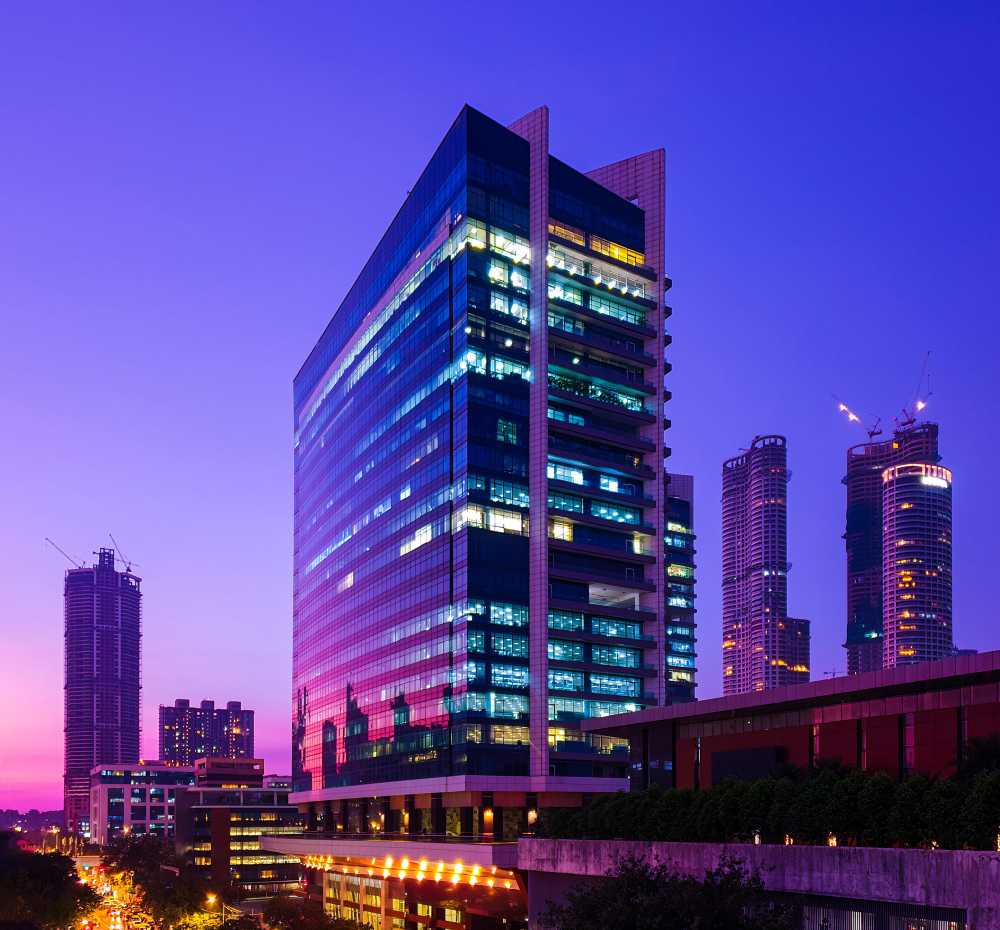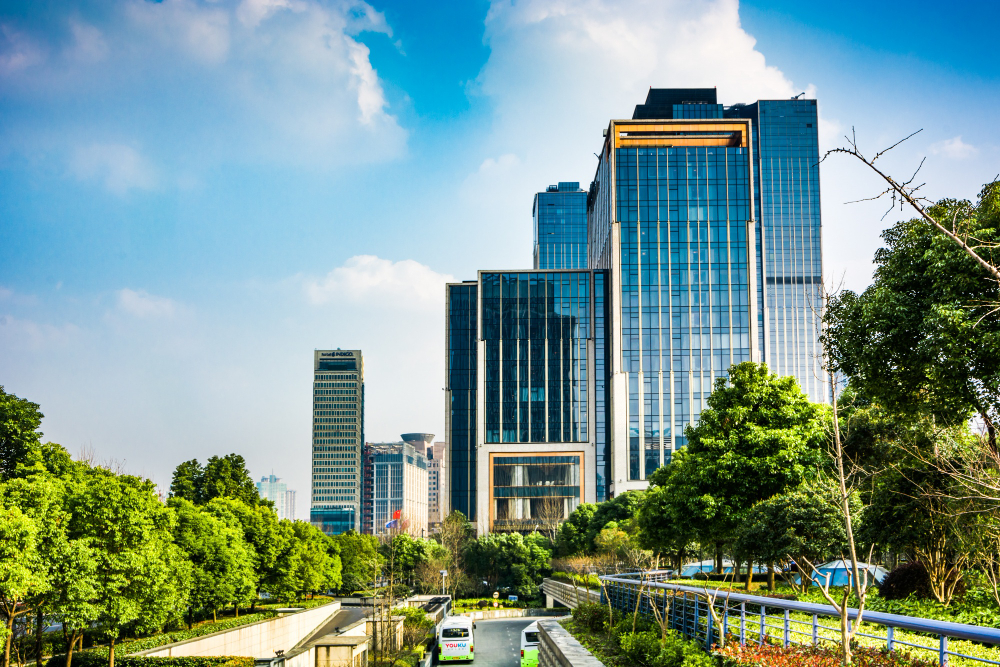Commercial Buildings: The Next Frontier for Energy Efficiency
As we live in a world increasingly conscious of the ecological footprint humanity leaves on the environment, the concept of energy efficiency is attracting more attention than ever. This is especially applicable in commercial buildings, which by nature, often consume vast amounts of energy for heating, cooling, lighting, and more.
Ensuring energy efficiency in commercial buildings is of significant importance. Energy-efficient commercial buildings not only reduce the strain on our planet’s resources but also tend to be more cost-effective. Their designs often feature better quality materials and modern technologies, which lead to lower utility bills, healthier working environments, and an overall reduction in the waste generated. They can contribute significantly towards reducing greenhouse gas emissions, a pressing concern in the era of climate change.
An Overview of Energy Efficiency

When we mention ‘energy efficiency’, we refer to the method of providing the same service or achieving the same result using less energy. It’s all about doing more with less – producing the same light, heat, or functionality but with less electrical energy input. It’s a practice that is coming to the fore in industries globally, and in particular in the work of commercial architects. As they design buildings, these architects consider factors like effective insulation, efficient heating and cooling systems, and installation of energy-saving appliances, paving the way for an energy-smart future.
Significance of Conserving Energy
The act of conserving energy is both a local and a global concern. From an environmental perspective, reducing our energy use decreases the amount of pollution that we generate and mitigates our impact on climate change. The less energy we use, the less dependent we become on fossil fuels, which cause harmful greenhouse gas emissions when burned for energy.
Beyond reducing pollution and curtailing climate change, energy efficiency also has tangible economic benefits. A more energy-efficient commercial building means less money spent on energy, freeing up financial resources for other uses. Energy conservation can also foster job creation in sectors like manufacturing and construction, contributing to economies on a local, regional, and national level. When placed in this broader context, the success of energy efficiency efforts has far-reaching implications for the environment, economy, and society at large.
Current State of Energy Efficiency in Commercial Buildings
As per the U.S. Energy Information Administration, commercial buildings are responsible for approximately 18% of the country’s total energy use. This energy is primarily used for lighting, heating, and cooling, and running various electronic and mechanical devices. Energy use in commercial buildings has been steadily increasing, largely due to the incorporation of more electronic devices and increased square footage in these buildings. This underlines the urgent need for strategies that can effectively reduce energy consumption in the commercial sector.
Common energy inefficiencies in commercial buildings can range from inadequate insulation, outdated HVAC systems, and poor lighting design to improper use and waste of energy due to lack of knowledge or awareness. These inefficiencies lead to excessive energy consumption, higher than necessary energy costs, and unnecessary environmental repercussions.
The impact of these inefficiencies is two-pronged: economic and environmental.
Economically, energy inefficiencies incur higher operational costs for businesses as more energy is consumed to maintain comfort and functionality in the building. Environmentally, more energy consumption directly translates to higher greenhouse gas emissions, contributing significantly to global warming and climate change.
Benefits of Energy Efficiency in Commercial Buildings

By implementing energy-efficient measures, businesses can drastically reduce their operating costs. These savings come from using less energy to heat, cool, and power the building. Lower utility bills mean more funds can be allocated to other areas of the business, improving overall profitability. In addition, energy-efficient buildings often have higher property values and can attract higher rental income, making them more financially viable in the long run.
By consuming less power, these buildings contribute to lessening the demand on the power grid, thereby decreasing air pollution and greenhouse gas emissions. This, in turn, helps in mitigating the severity of climate change. Besides, buildings designed with energy efficiency in mind often incorporate environmentally friendly materials, contributing to a reduction in waste and encouraging sustainable development.
Energy-efficient buildings tend to have better air quality due to efficient ventilation systems, leading to a healthier work environment. Reducing the energy consumption in buildings also means lower demand on energy resources, which can lead to greater energy security at the national level. Ultimately, energy efficiency in commercial buildings contributes to the creation of sustainable and resilient communities, marking a win on multiple fronts.
Ways to Improve Energy Efficiency
An initial step towards improving energy efficiency in commercial buildings is incorporating energy-efficient design. This pertains to the strategic placement of windows to maximize natural light, optimal insulation to regulate temperature, and a layout that promotes airflow thereby reducing the dependence on HVAC systems. The selection of energy-efficient appliances and systems is a key factor in supporting the overall energy efficiency of the building.
Energy-efficient practices such as regular maintenance of HVAC systems, turning off lights and equipment when not in use, and educating occupants about the importance of energy conservation can fundamentally contribute to reducing energy consumption. Making sure employees are aware of and engaged in energy-saving policies ensures the practices are consistently carried out.
Energy management systems that monitor and optimize energy use, occupancy sensors that control lighting, and high-efficiency HVAC systems can all significantly augment a building’s energy performance. Renewable energy technologies such as solar panels or wind turbines can be deployed to generate a portion of the building’s energy needs, fostering a more sustainable energy usage model.
As we have explored, the pursuit of increased energy efficiency in commercial buildings brings along with it significant economic, environmental, and social advantages. Becoming more energy efficient is not just a beneficial strategy; but a necessity for building a sustainable and resilient future. Through thoughtful design, consistent energy-saving practices, technological innovation, and supportive policies, we can steer our commercial infrastructure toward a path of reduced energy consumption and increased sustainability.

















